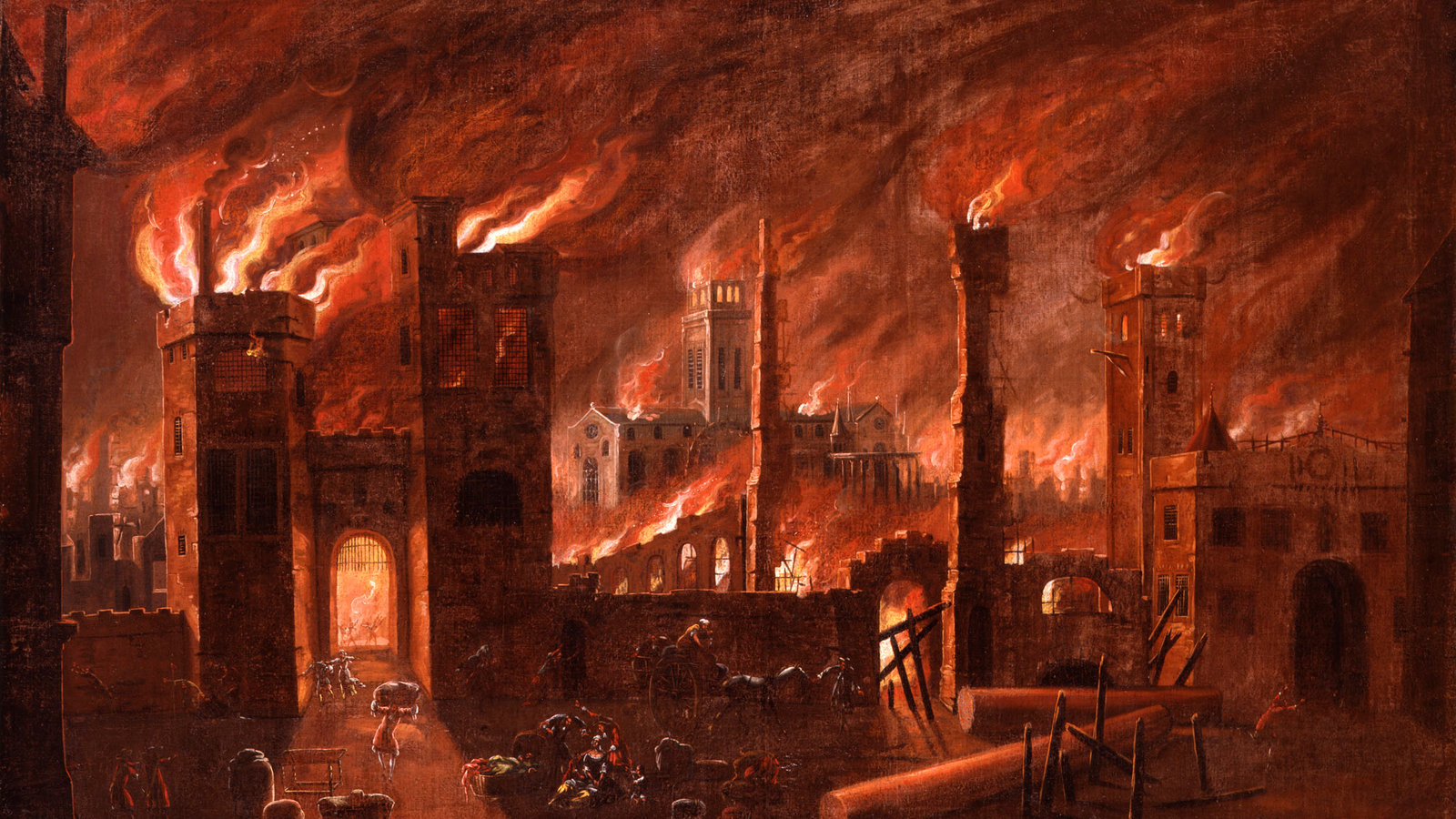On Sunday, September 2, 1666, the Great Fire of London broke out, devastating the city.
The fire accidentally began in the house of the King's baker in Pudding Lane near London Bridge. Farriner, his family and a servant managed to escape through an upstairs window, but a bakery assistant died in the flames.
Violent east winds fanned the flames, destroying almost five-sixths of the city of London for four days. The fire was finally extinguished on September 6 by the use of gunpowder. Only six deaths were recorded, but this number is historically disputed.
Quick Facts:
- The Great Fire of London broke out on September 2, 1666. It blazed for four complete days before it was finally put out on September 6.
- On the evening of September 1, 1666, King Charles II's baker, Thomas Farriner, failed to extinguish his oven properly. He retired to bed, and by the early morning hours, a spark from his oven ignited a pile of firewood that was lying beside the oven. Before long, his house was ablaze, and the fire began to spread.
- The most notable damage from the Great Fire of London was the complete wreckage of St Paul's Cathedral.
- Fanned by strong easterly winds, the blaze transformed into an inferno spreading across London. Concurrently, medieval London's narrow streets and crowded houses made of oak timber could not resist the flames.
- There was no national fire service to be called upon to put the fire out, so the general public resorted to crude firefighting methods of the day, consisting of the entire neighborhood armed with pails of water and primitive hand pumps to try and extinguish the fire.
- There are only six verified deaths recorded from the Great Fire of London. However, some historians argue that the number of people who lost their lives could be more because the deaths of poor and middle-class people had not been accounted for, and the fire had left no recognizable remains of its victims.
- Prophecies by Walter Gostelo, Ursula Southeil, William Lilly, and Nostradamus point to the Great Fire's prediction. In 1661, John Evelyn warned of the potential for fire in the city. Then three years later, Charles II wrote to the Lord Mayor of London in 1664, suggesting the enforcement of building regulations to help contain fires.

